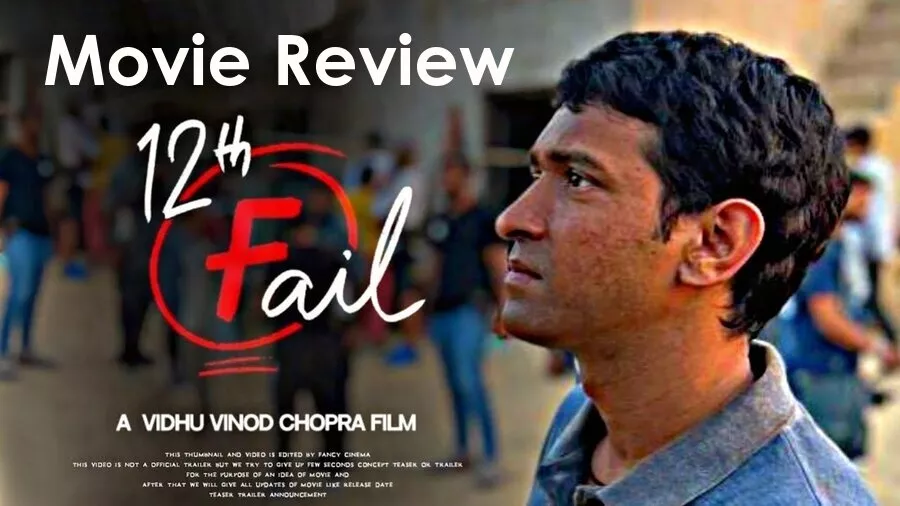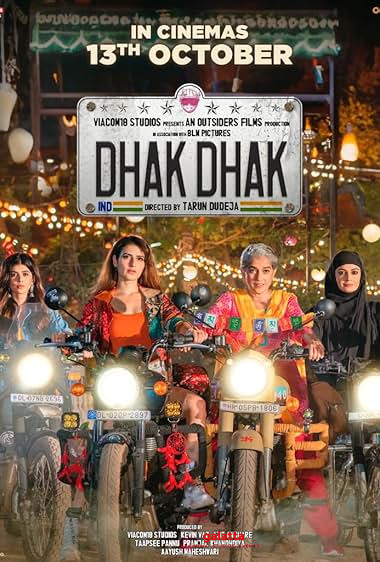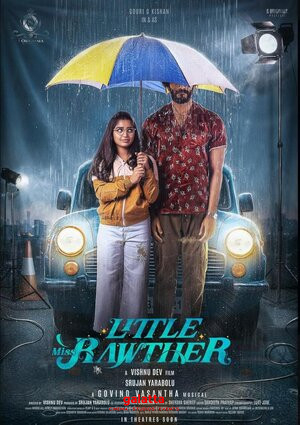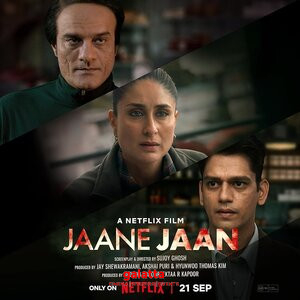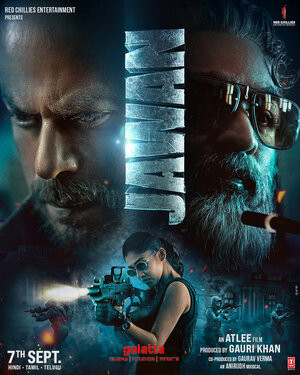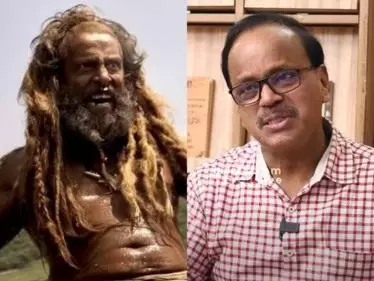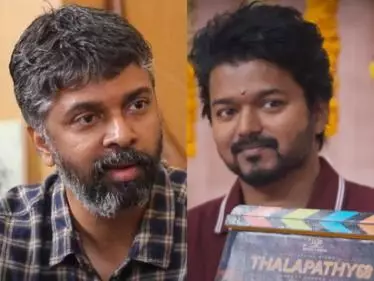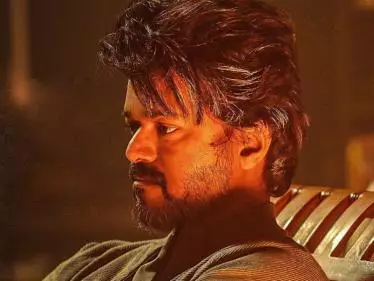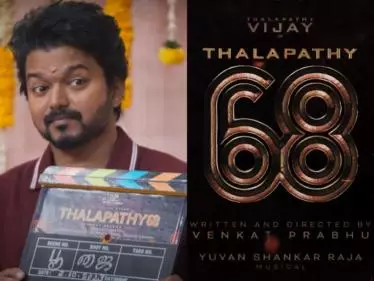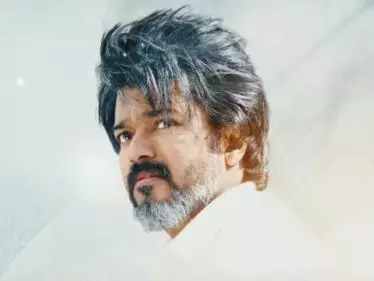12th Fail Movie Cast & Crew
Vidhu Vinod Chopra’s superb new movie is based on real events, as recorded in Anurag Pathak’s book, 12th Fail. It features Vikrant Massey as Manoj, a young man from the Chambal region who, inspired by a policeman, wants to become one himself. And what inspires him about this policeman? His tendency to tell the truth. It must also help that Manoj’s father is himself a satyavadi. The man is suspended after refusing to aid the lie that the area’s farmers got the seeds they were allotted. (The unsurprising truth is that government officers sold the seeds in the black market.) The result of this suspension is a very funny scene with guns, which shows that we are in a dreaded dacoit-land, where firearms are whipped out for the smallest of disputes.
The odds are against Manoj, because the UPSC exam is a distant dream for someone from his background. (A character says, out of two-lakh ‘Hindi-medium’ aspirants for IAS/IPS, only 25-30 get selected.) And we find ourselves in an underdog story. Unlike the usual “triumph of the spirit” crap usually dished out by the movies, we seem to be watching the life and times of a very real man and not the life and times of a templated narrative arc. Walking into 12th Fail, I wondered: How can the story of a man studying for the UPSC exams be made… well, un-boring? Here’s how. The writing is a marvel of small things that add up to grand payoffs. Look at the way Manoj’s grandmother refuses to part with her pension, even when the family is in the direst of situations. And when she finally parts with this money – willingly – and when something happens to this money, the event hits you like a lead brick.
The screenplay is littered with lead bricks. The part where the words “terrorism” and “tourism” play off one another. The part where the father says, “Hum jaise log kahaan jeet paayenge,” and the bright-eyed son replies, “Par haar bhi nahin maanenge na!” The rousing mini-slogan (#Restart), which says that even if you hit rock bottom, you can always begin the climb all over again. The quiet rebellion of the heroine, Shraddha, played by Medha Shankar (in fact, the way the whole 'friendship to romance' angle is written). Everything starts soft and hits hard. Only in the final portions – say, when an intimidating examiner looms large in the frame – do we feel we have entered a zone that’s a little “filmy”, but only a little, and only because the preceding stretches have been so remarkably underplayed. At several points, my eyes went moist.
There’s nothing showy, and even a shot where Manoj is reflected in the rear-view mirror of a vehicle has meaning, a purpose. The result is some of the purest filmmaking I’ve seen. And this purity reflects in every single performance. Medha Shankar is a fragile presence, but inside, she is all steel. As for Vikrant, he knows he has the role he has been waiting for, the role of a lifetime: he grabs it and runs with it. Manoj is a Kalam-reading idealist, who’s stubborn about the way he wants to get ahead. So the lines that drop from him don’t sound like preachy lectures, even when the line itself is a preachy mini-lecture. A cop tells Manoj: “Chhote se ho, par dum hai tum mein”. Vikrant uses his slight stature to suggest the internal strength of an underdog. He may not look strong, but inside, he’s Atlas. His eyes are ablaze with the crazy-light we see in great eccentrics. There’s no shame in him that he’s doing menial jobs to survive, because these are honest and truthful ways to survive.
And that is the film’s crux: not that a “12th-fail” Hindi-medium student achieves his dream, but that he does so in an honest and truthful manner. This is usually the kind of “noble” premise that makes me do a quick U-turn and run for my life, but 12th Fail is so light on its feet. Like its protagonist, the film itself feels truthful and honest. Everything is one of a piece. When Manoj goes from his village to a big city (Gwalior) and then to a bigger city (Delhi), he loses things, he gains a male friend (Sanjay Bishnoi), he gains a female friend in Shraddha, he gets betrayed and rejected and accepted again, a clock keeps ticking away (literally), and Fate keeps playing Snakes and Ladders with him – and all of this is captured like the flow of life, without pausing for effect or to highlight the melodramatic potential in a situation.
12th Fail is one of the rare mainstream films that uses music sparingly. The score, reminiscent of Ravi Shankar’s plaintive music for Pather Panchali, is made from a few Indian instruments, and it plays at the end of scenes rather than over them. The music – therefore – feels earned, like a reward for something that has just happened. So if we feel what we feel, it is due to the acting and the staging and the direction, and not because a solo violin is tugging at our heartstrings and saying, “Cry, cry, cry…” This can only come from a confident filmmaker, and his confidence is infectious. Rangarajan Ramabadran’s handheld cinematography is the equivalent of a fly on the wall, moving in close when Shraddha begins to sing, or rushing downstairs with Manoj, or registering the unsteadiness of a single emotional man in a sea of people. The gentlest focus shift happens when Shraddha argues with her father, and the one track/trolley overhead shot occurs when Manoj walks into a room filled with people like him, to show him in the midst of many.
12th Fail strips away all artifice from filmmaking. It proves that you can show real-life struggles of the underprivileged without it all feeling like you are reading a finger-wagging newspaper editorial by a buttoned-up academic. Even the interval-point high: we may hear a ringing sound, but the scene itself is muted. Even the “I love you” scene: it’s wistful and it produces an emotional high, especially with the closure against the backdrop of pink mountain skies, but the sequence itself is played in a minor key. Even the midway scene where Manoj returns home as a failure: it contains a breakdown, but does not contain melodrama. The feelings come from Manoj and from the people around him, and they aren’t “calculated” to make the audience feel – and that’s why we feel these emotions all the more. The less we are manipulated, the more we respect the film, the filmmaking. In that respect, 12th Fail earns top marks.
